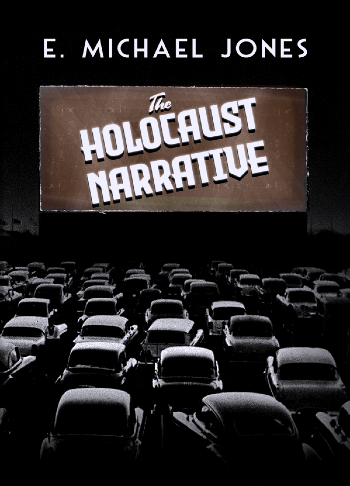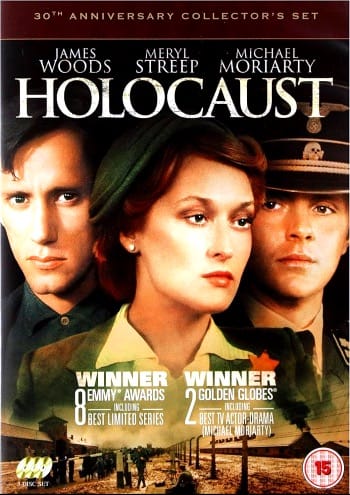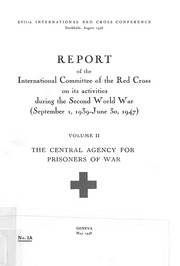Dr Eugene Michael Jones (commonly known as E Michael Jones) was an Assistant Professor of American Literature at St. Mary’s College and is widely known for his critical views on contemporary cultural and religious issues.
He was dismissed in 1981 due to his excellent anti-abortion stance, leading him to leave academia and start a magazine, initially named Fidelity and later Culture Wars, which focuses on the disarray in the Catholic Church including the subversion of the Catholic faith.
However, the focus of this podcast episode was his fascinating book, The Holocaust Narrative.

The gist of the book
The term ‘holocaust‘ has evolved over time, he argues, adding that various literary and propaganda influences including TV shows (like Holocaust, a miniseries starring Meryl Streep, which came out in the 1970s) and films have shaped our understanding of history.
In other words, 'holocaust' has changed in its meaning over the decades. It used to mean 'a burnt offering', which is no longer what it means.

The word hadn’t really been used by anyone until around the 1970s and, as Jewish historian Norman Finkelstein pointed out to me, almost nothing had been written about it for the first 20 years.
'The term holocaust has evolved over time'
It took about two decades to write a book about the Holocaust but only three months to write about the sinking of the Titanic.
Why?
Dr Jones adds that some of the most influential WW2 figures like Eisenhower, Churchill and de Gaulle did not mention gas chambers or the genocide of Jews in their memoirs. In fact, in 2005, Richard Lynn—Professor Emeritus, University of Ulster—confirmed this:
I've checked out Churchill's Second World War and the statement is quite correct—not a single mention of Nazi 'gas chambers,' a 'genocide' of the Jews or of 'six million' Jewish victims of the war.
Eisenhower's Crusade in Europe is a book of 559 pages; the six volumes of Churchill's Second World War total 4,448 pages; and de Gaulle's three-volume Mémoires de guerre is 2,054 pages. In this mass of writing, which altogether totals 7,061 pages (not including the introductory parts), published from 1948 to 1959, one will find no mention either of Nazi 'gas chambers,' a 'genocide' of the Jews or of 'six million' Jewish victims of the war.
Adolf Hitler was hated by the Allies, yet the three most significant Allied leaders—Churchill, de Gaulle and Eisenhower—said absolutely nothing about either death camps or extermination of Jews in their extensive post-war biographies.
Why?
Wasn’t that a lost opportunity to completely bury the Führer?
There is insufficient evidence to justify the statement regarding execution in gas chambers.
—Foreign Relations of the United States: Diplomatic Papers, 1943
To make matters more interesting, the Red Cross found no evidence of gas chambers in Germany.
More specifically, it’s a three-volume investigation called the Report of the International Committee of the Red Cross on its Activities during the Second World War, published in Geneva, 1948.

It's probably just fake news. 😎







